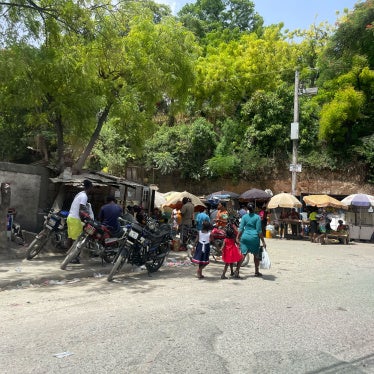Women in Peru facing tough reproductive choices got great news this week when the Ministry of Health adopted new abortion guidelines that should help doctors treat patients in need. Ninety years ago, Peru’s lawmakers decided that even though abortion is a crime in the country, women (and their doctors) should not go to jail if the abortion was to save a woman’s life or when she faced “serious and permanent damage” to her health from the pregnancy. While this might seem clear, doctors operated for years without any formal guidance on when and if they can provide such abortions.
When doctors fear prosecution or prison, it can have a chilling effect on their willingness to consider all medical options for pregnant women and girls. For example, in 2007, Human Rights Watch interviewed the mother of a 14-year-old girl who was pregnant as a result of rape. The girl, known as L.C., tried to commit suicide by jumping from a building. She survived but damaged her spinal column and risked permanent disability. Doctors recommended emergency surgery, but it was postponed due to her pregnancy. L.C.’s mother requested that the pregnancy be terminated so the surgery could be performed, but the hospital’s medical board denied the request, saying L.C.’s life was not in danger. Her mother told Human Rights Watch, “[j]ust like that, even though my daughter is the way she is, they said, ‘We can’t, señora. That is a criminal offense.”
L.C. later miscarried, and had spinal surgery more than three months after doctors said it was medically necessary. She was paralyzed from the neck down.
A United Nations expert body on human rights condemned the Peruvian government’s conduct, saying it had violated L.C.’s human rights, and called for formal guidelines, a demand echoed by Peruvian and international groups, including Human Rights Watch.
On Saturday, the Ministry of Health adopted a technical guide on legal abortion, a significant step in addressing the regulatory vacuum that has threatened the health, rights, and life of women in Peru. The guide outlines the administrative procedures a hospital must follow, including an appeals process. The ministry should now ensure these procedures are implemented properly. The guide allows hospitals to consider the rights and needs of women and girls on a case by case basis, but it doesn’t necessarily cover every eventuality. It might not, for instance, bring clarity on cases where a girl or woman should have access to abortion, because the unwanted pregnancy has such a profound impact on her mental health that she risks permanent self-injury or suicide.
The UN Committee on the Elimination of Discrimination Against Women is reviewing Peru’s women’s rights record today in Geneva. It should congratulate Peru on the adoption of the guide, but also remind it to implement the new regulations in accordance with its human rights obligations.
After almost a century of waiting, women and girls in Peru faced with risky pregnancies deserve to hear more from their doctors than “we can’t, señora. That is a criminal offense.”









